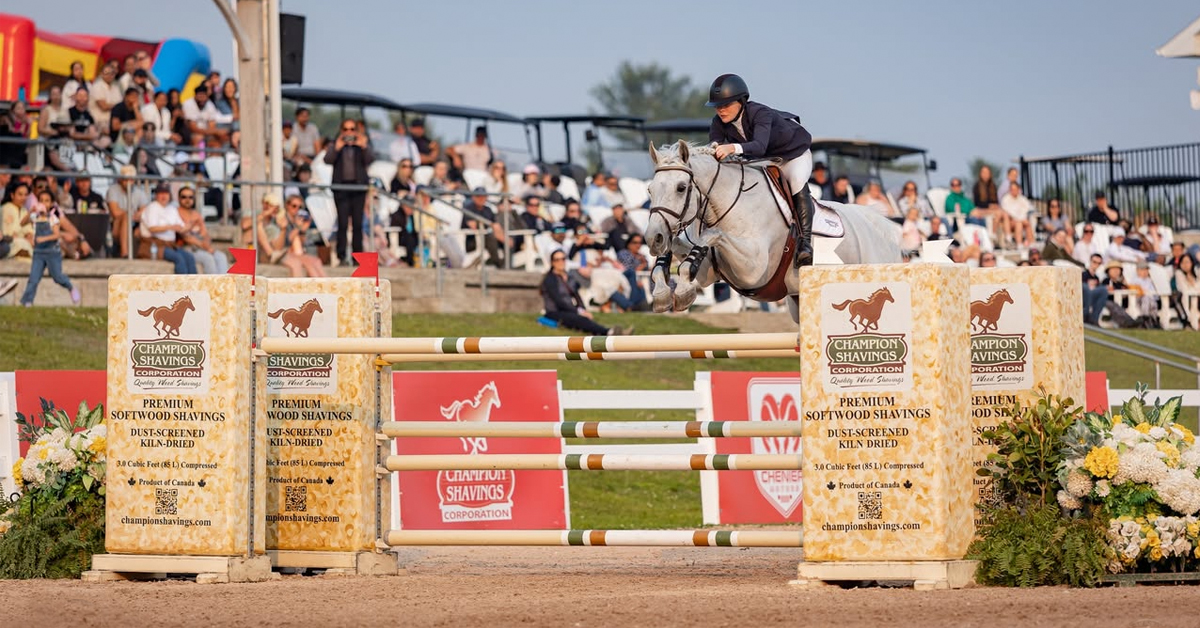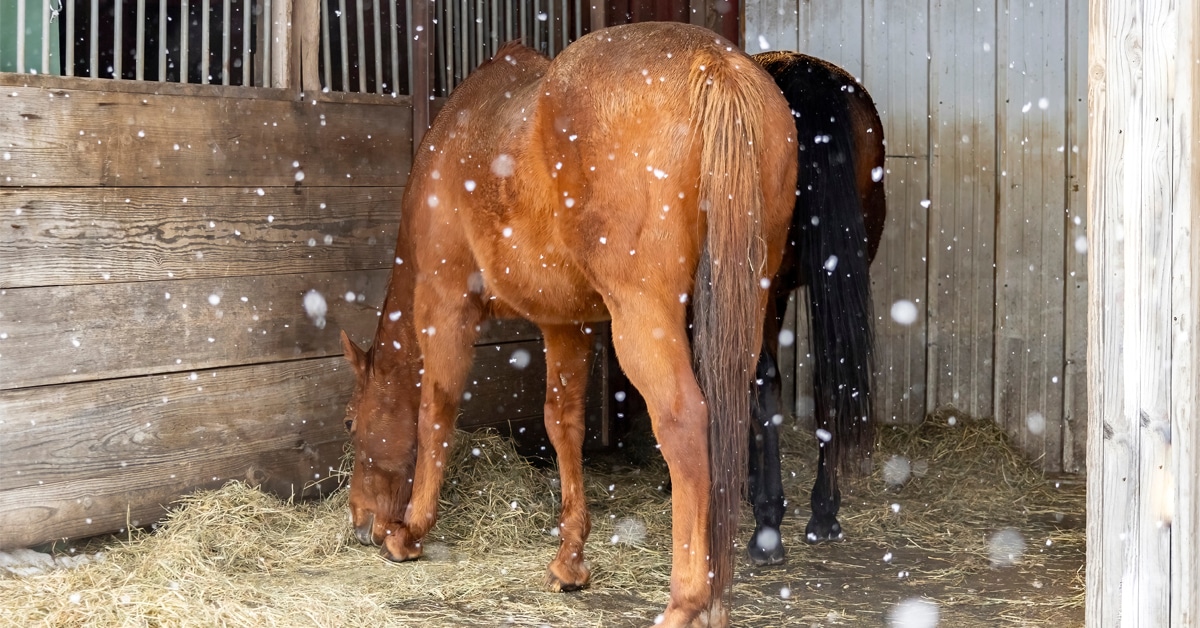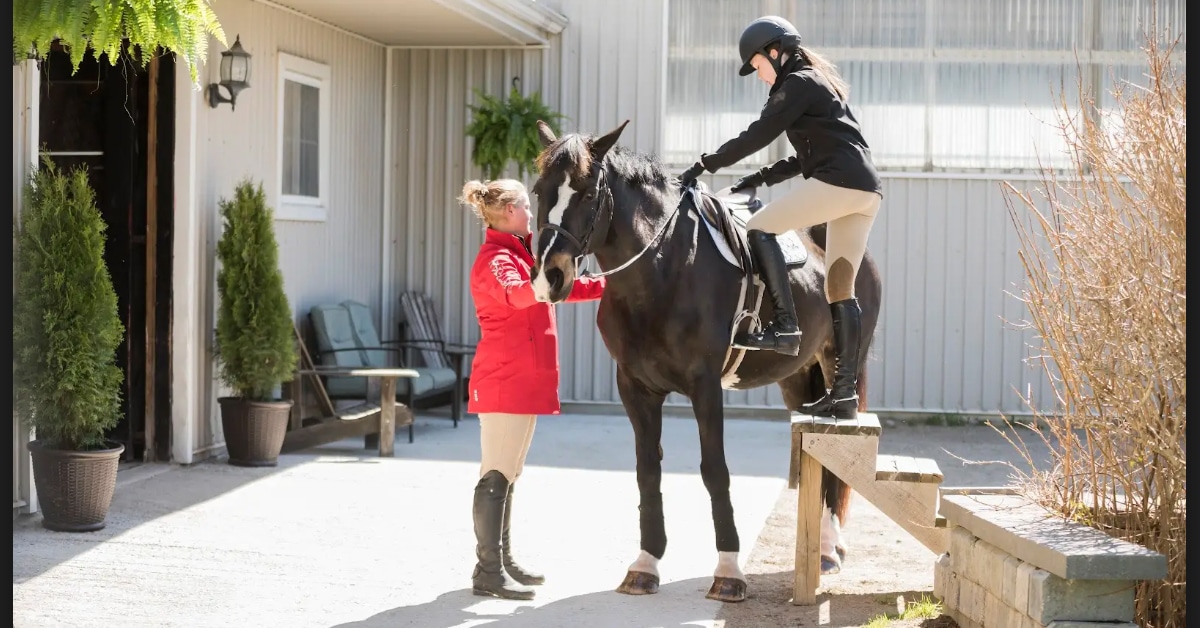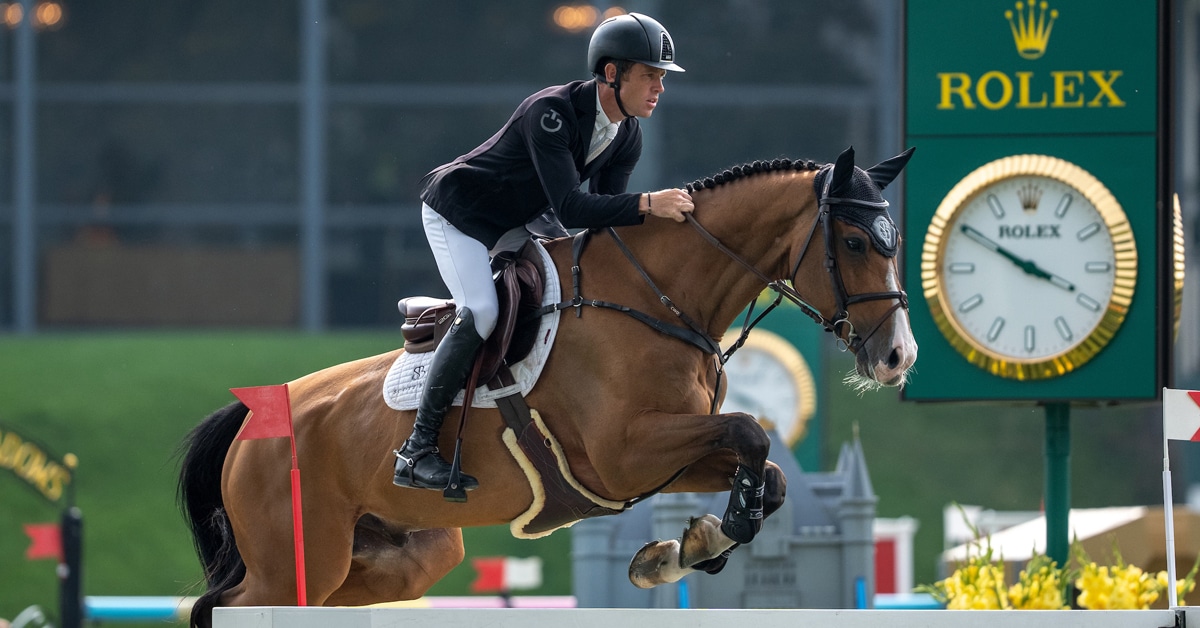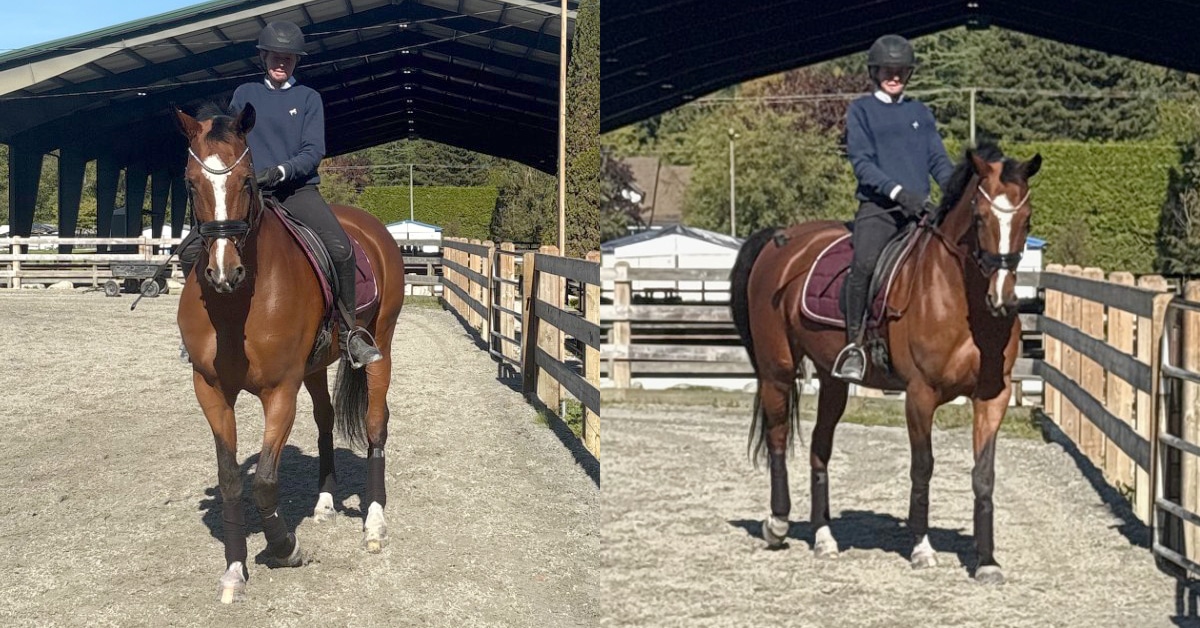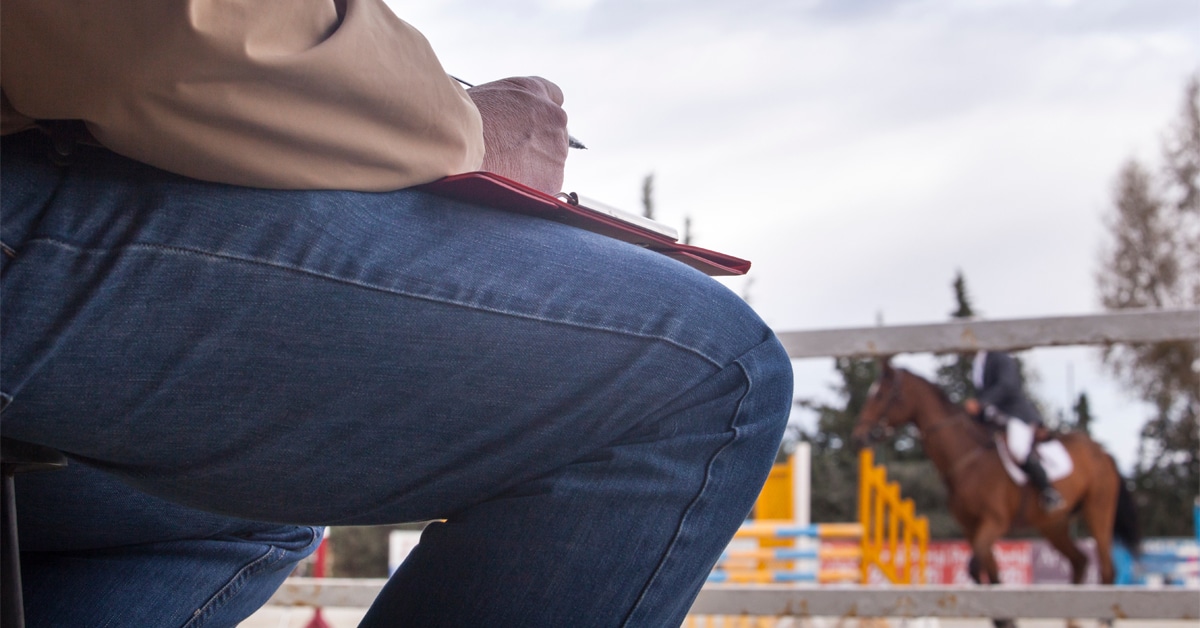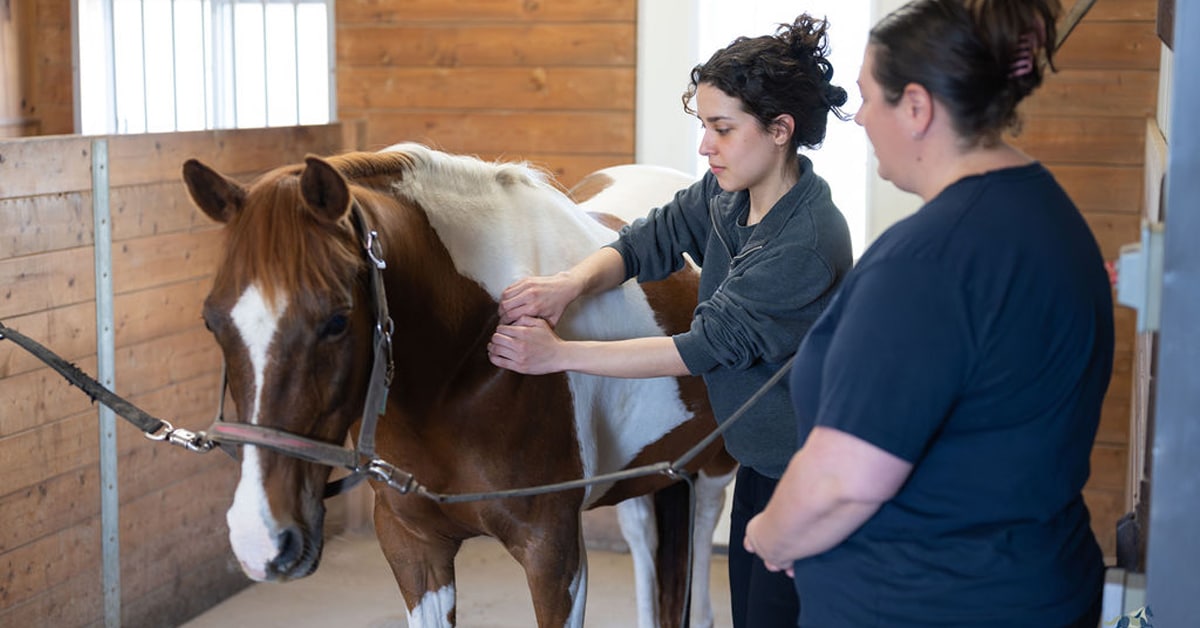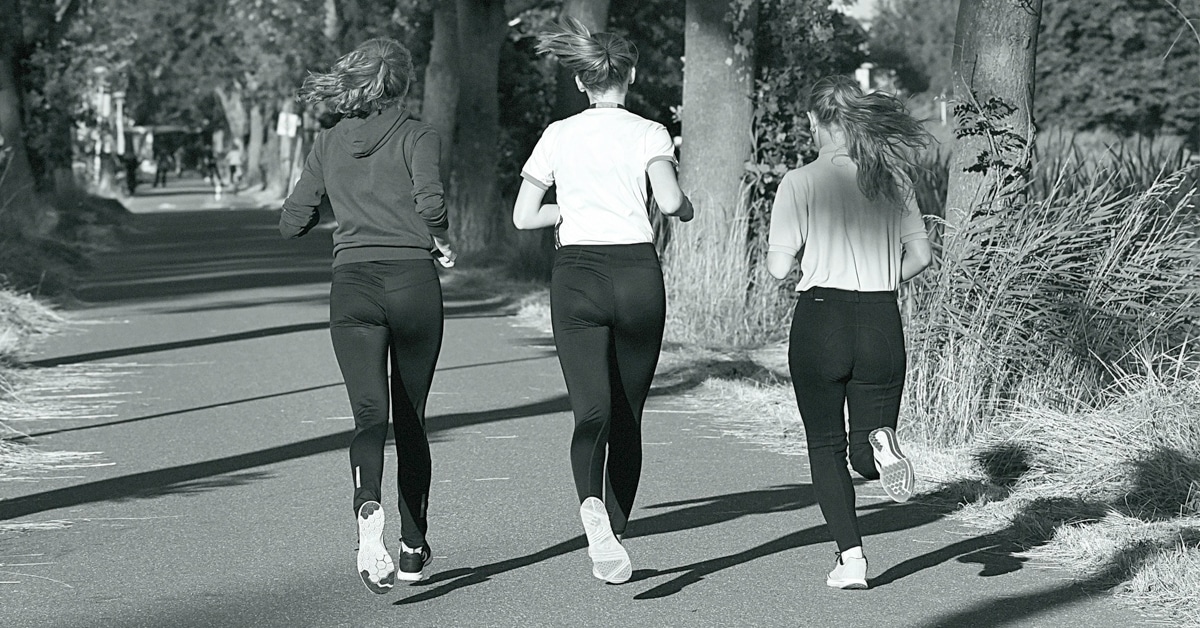Daniel Deusser is a happy man.
Sure, the defence of his World Cup title didn’t go as well as he had intended, or that pundits had predicted (he finished 14th), but he’s developed a philosophical approach to defeat. He became the world’s number-one show jumper in April, displacing Scott Brash (GBR), and he’s still riding the fabulous horse which brought him the World Cup title in 2014. There’s also the cushy little gig with his employer Stefan Conter and Stephex Stables which has provided him with enormous career opportunities.
But the real reason for the 33-year-old’s happiness was the arrival in February of a daughter, Stella. Starting a family with his girlfriend Caroline Wauters, the daughter of the late Belgian Olympic team rider Eric Wauters, has “completed” him.
He’s a hands-on dad, too; feeding and diaper changing, he’s happy to do it all, although he admits he never imagined how tiring parenthood can be. “It’s really fun, but it’s a lot of work, too,” he says. “But you know, now she’s smiling like a small person. I could watch her all day.”
After six years riding for Global Champions Tour founder and horse dealer Jan Tops (during which time Daniel was runner-up in the 2007 World Cup final with Air Jordan Z), three years ago in May Daniel became top jockey for the Stephex Stables in Belgium, another of Europe’s leading sales stables. The move was logistic more than anything else, explains Daniel. “Every morning Caroline would go an hour one way to get to her job and I would drive an hour in the opposite direction to Stal Tops, so we didn’t get any time together. I thought about starting something myself and I didn’t particularly want to ride for another dealing stable, but Stefan offered me a job and it was a good location so I thought I’d give it a try.”
When he arrived he had no horses of his own, but a stable full from which to choose. Cornet D’Amour was being ridden by Pedro Veniss at the time, but their results weren’t great, so Stefan decided to sell the Cornet Obolensky son. Hunter Harrison invested in the gelding and asked Daniel to have a go.
The pair clicked. In Daniel’s senior championship debut in Herning, Denmark in 2013, they finished fifth individually and returned home to Mechelen with a team silver medal. Then suddenly, Daniel was hoisting the World Cup trophy aloft in Gothenburg. Four months later, in his first-ever world championship, Daniel and Cornet D’Amour were Germany’s most successful pair, coming within two whiskers of the final four. He hopes to do even better this summer at the European Championships in Aachen.
Life must be pretty hectic with 80 or so horses under saddle at the yard. How do you spend your days?
I get to the stable usually by 8 a.m. I have ten horses in my string, but two or three may be on their way to a show or on their way back from one. I tend to concentrate on the ones which are preparing for a show and one or two young horses, so probably I ride between five and eight a day. I head home at 5:30 and then it’s family time. I really look forward to it.
How did you get started with horses?
My father rode, but it was more like a hobby for him, although he reached a good standard, like two-star and three-star. My granddad and uncle had a farm and the whole family lived in the same village, so we were all involved in horses to one degree or another. I never rode ponies. I was nine when I rode in my first show on a horse called Rafenia – I think we were jumping 80 centimetres! I won my first “S” class (1.45m) at 15 and then just progressed from there.
Can you identify a turning point in your career when you realized you could earn a living doing this?
When I was 20 and after I completed college [studying biology and sports science] I knew I couldn’t sit in an office. Apart from riding, I was into all sorts of sports, like tennis and athletics. I wasn’t sure I wanted to be a rider, but Franke Sloothaak asked me if I wanted to get some work experience at his place. Well, if there was a turning point for me it was then. It was a total revelation. Franke taught me how to build a horse and how to make a horse an athlete. I hadn’t given it much thought before then.
Besides horsepower and an ultra-competitive nature, is there another ingredient that gives you an edge?
You have to have a lot of patience, because people and horses don’t speak the same language. You have to be able to communicate and become one with your partner, and that takes time … and still it doesn’t always go the way we want it to.
How would you describe your personality?
I guess I have the tendency to overthink things, although I try to be an optimist. A clever man once told me that the glass should always be half-full, not half-empty.
Where is your favourite place in the world?
I travel a lot going to shows and there are many great places, but my favourite place would have to be in Belgium, at home with my girlfriend and our daughter.
Where would you most like to go that you haven’t been?
Bora Bora. The white sand and the emerald sea … it just looks idyllic and like a super place to relax.
Do you have a fitness regimen?
I started one time to do yoga and stretching, but I didn’t have enough enthusiasm to keep going.
What’s your favourite food?
A real traditional German schnitzel!
With so many amazing showgrounds on the professional tour, can you name a favourite?
As a German, it would have to be Aachen. With 50,000 people cheering for you it’s an amazing feeling. Aachen is as good as, or better than, any championship.
What’s more important to you – medals or prize money?
Without money you can’t do the sport, but a medal you have for a lifetime. I have one and came close to two more. It’s always been my goal to represent my country at the Olympics. I hope I can fulfill that goal in Rio.
If there was one piece of advice you would offer to Stella, what would it be?
If you want success or to achieve your goals, you must keep your feet on the ground. There are so many ups and downs in life – and certainly in our sport there are more downs.
The Latest
